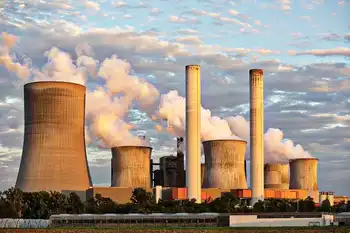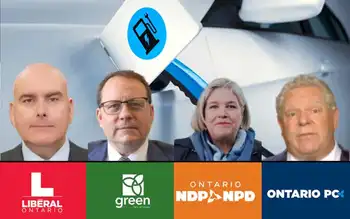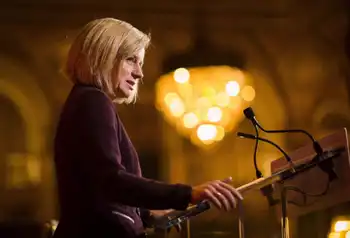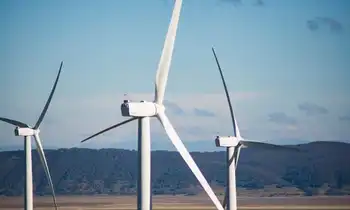Empowered EPA will not spark revolution
Now that Senate Majority Leader Harry Reid has all but abandoned climate change legislation this year, the Environmental Protection Agency has to step in to take action on climate.
President Barack Obama has long vowed the EPA would go it alone if Congress failed to act. Once intended as a threat to spur Congress to pass the bill, EPA regulation is now one of Obama's dwindling options for doing something on climate.
The EPA solution raises the ire of the political right as government intrusion, while disappointing liberals seeking a long-term plan to cut pollutants like carbon dioxide.
"While EPA action is better than nothing, it isn't the best approach," said Manik Roy, vice president of federal government outreach at the Pew Center on Global Climate Change.
"You might get reductions in the short term, but it doesn't move us in the longer term to the technological transformation that we need," he said.
Until a comprehensive legislation becomes a possibility, which may be years into the future, achieving short-term emissions goals will be the focus. Obama's climate envoy, Todd Stern, said this week that the president's goal of cutting greenhouse gas emissions 17 percent below 2005 levels by 2020 is still on the table.
If Obama does not at least show that the country is on track to meet that he could lose support at home as concern grows China is dominating the clean energy race.
Failure would smother chances for the United States to be seen as a leader in global climate talks.
Fortunately for Obama, the EPA does have tools to force reduction of some emissions. Some of the EPA's power comes from its endangerment finding from late last year that declared greenhouse gases endanger human health.
EPA chief Lisa Jackson has shown she's willing to fight to uphold the finding, rejecting petitions last week from Texas, Virginia and industry groups challenging it.
The agency has been collecting greenhouse gas emissions data from power plants and has helped issue rules to cut gasses spewing from vehicles. Next year it will require big emitters such as power plants, manufacturers, and refineries to hold permits to emit greenhouse gases.
To be sure, court cases and congressional challenges surrounding the endangerment finding could slow down a direct EPA crackdown on greenhouse gas emissions.
But the agency has other ways to cut the pollution.
Looming emissions rules for power plants on substances not directly related to climate change — such as trace metals, dioxin, mercury and acid gases — may allow the EPA to have a more immediate impact by forcing coal plants to retire early.
A court settlement requires EPA to issue the Air Toxics Rule on those pollutants not related to global warming by March 2011. Implementation is expected to begin about three years later.
The toxics rule, combined with regulations on sulfur dioxide and nitrogen oxides that cause smog and acid rain, will force utilities to shut down many of their oldest and least efficient coal plants, which are the biggest polluters of the main greenhouse gas carbon dioxide.
A Bernstein Research note on the upcoming pollutant rules predicted that by 2015 power plants accounting for 15 percent of current coal fired generation "may be unable to comply and will cease to operate."
"Carbon isn't even the front door anymore," to winning short term action on climate," said Kevin Book, an analyst at Washington-based ClearView Energy Partners.
The World Resources Institute, a top climate researcher, predicted in a recent report that aggressive implementation of federal measures already on the books combined with state actions would help the country get close to Obama's 2020 goal.
But climate change experts say no matter how aggressive the EPA gets, the agency does not have the tools to spark innovation to achieve the cuts of 80 percent or more over the next four decades that scientists say would prevent deadly storms, floods and droughts from global warming.
"The 2050 target is simply not credible with these kinds of measures by the EPA," said Divya Reddy, a risk analyst with the Eurasia Group.
That's because the EPA for decades has regulated pollutants by requiring emitters to use only technology available, such as scrubbers on smokestacks.
Only Congress can pass a law laying out a national cap and trade market on greenhouse gases that backers say would push industries themselves to invent new ways to reach deep emissions cuts. They say it would lead to innovations in energy and in keeping planet-warming emissions from reaching the atmosphere.
But few expect Democrats have the votes to tackle climate change in September when they come back from recess or even in a "lame duck" session after the November elections. And if Republicans pick up seats in Congress in the mid-term votes, legislative action could be stalled for years.
In the meantime, the EPA can hope the sting of its unilateral actions will eventually push broad swathes of utilities and manufacturers to support a climate bill.
Related News

BC residents split on going nuclear for electricity generation: survey
VANCOUVER - There is a long-term need to produce more electricity to meet population and economic growth needs and, in particular, create new clean energy sources.
Increasingly, in the worldwide discourse on climate change, nuclear power plants are being touted as a zero-emission clean energy source and a key solution towards meeting reduced emissions goals. New technological advancements could make nuclear power far safer than existing plant designs.
When queried on whether British Columbia should support nuclear power for electricity generation, respondents in a new province-wide survey by Research Co. were split, with 43% in favour and 40% against.
Levels of support reached…





